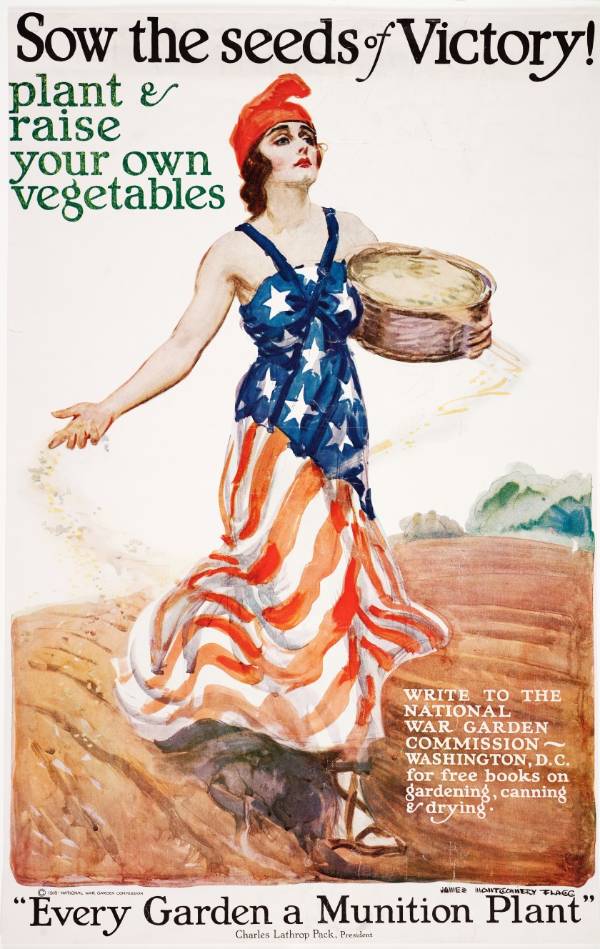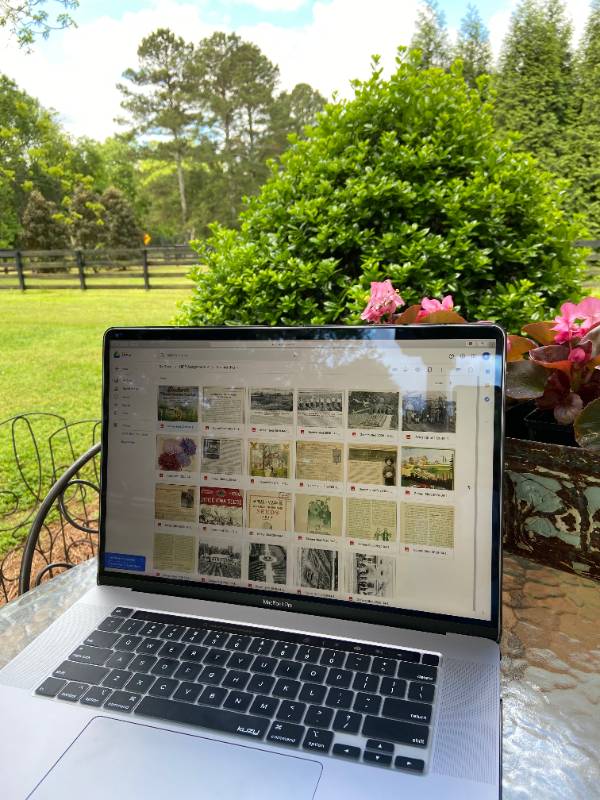Remotely Archiving the Pandemic
 Scott Nesbit and his students are working hard to archive the current pandemic despite
restrictions on travel and mass gatherings. Historic preservation often necessitates
site visits, hands-on work, and travel. Because of complications surrounding the coronavirus
pandemic and various shelter in place guidelines, doing traditional preservation work
is simply not possible.
Scott Nesbit and his students are working hard to archive the current pandemic despite
restrictions on travel and mass gatherings. Historic preservation often necessitates
site visits, hands-on work, and travel. Because of complications surrounding the coronavirus
pandemic and various shelter in place guidelines, doing traditional preservation work
is simply not possible.
In response, Nesbit, his students, and UGA library staff are exploring innovative ways to document this point in history. By accessing online records, photos, current online discourse, and other resources, Nesbit’s students are hoping to build a complete picture of our current moment. Students will select a community, research that community’s response to the 1918 Spanish Flu, then compare that response to that of our current moment.
This archival project was not planned. Amidst the relatively rapid implementation of shelter in place guidelines and UGA’s transition to online instruction, Nesbit considered ours to be a moment of critical importance. There is hardly an aspect of our politics, economy, recreation, study, and professional work that has not been touched by the coronavirus. Archival work prevents precious details from being lost, therefore creating a more complete picture of our current situation.
Fox 5 Interviews Nesbit and UGA Library staff on their preservation work. Air date 5/13/20.
Nesbit has one stand-out consideration: documenting history now is actually more difficult than it was in the past. Due to the myriad sources made available to us via the Internet, archiving is just as much about what materials to keep as well as to discard. Additionally, copyright and trademark restrictions may prevent inclusion of certain resources. By Nesbit’s students will have to pick and choose which news articles, soundbites, photos, and statistics to include… and which to reject. By doing so, individual student projects have the potential to present radically differing perspectives on our current moment.
Even so, Nesbit’s students are working alongside the UGA Libraries to compile as many archival materials as possible. According to a story posted to UGAToday, “The collection will act as a time capsule accessible to researchers, educators and students at UGA and around the world. The materials will provide context and personal stories of the positive and negative impact felt during this period […].” Nesbit’s students will collect material until May 5, the end of the spring semester.
When asked about the importance of historic preservation and why it is key to document the COVID-19 pandemic specifically, one of Nesbit’s students, Keeli Windham, stressed that historic preservation allows us to preserve our culture—and specifically our various responses to the pandemic—for the benefit of future generations:
“Historic preservation is incredibly valuable because the practice seeks to preserve, conserve, and protect not only notable buildings but landscapes, objects, and most importantly culture. This profession seeks to convey invaluable insight of our past and present for generations in the future. That is why documenting the response to the current COVID-19 pandemic is so important. It will allow for future communities to be able to look back and understand the full picture of what was happening during this uncertain time, perhaps to learn from it or possibly to study the situation to avoid similar events. Documenting the collective response and numerous viewpoints from this pandemic will further contribute to that knowledge base.”
 Windham's work from home station while remotely archiving the pandemic
Windham's work from home station while remotely archiving the pandemic
Windham, who working toward her Master’s in Landscape Architecture and a certificate in Historic Preservation, has chosen to focus her study on the communities that built Victory Gardens in 1918 and those that are building them in 2020. In both crises, the populace are fighting back in a “war” that had overtaken public consciousness—World War One and Spanish Flu, and the coronavirus. By accessing the National Archives, UGA’s Biodiversity Heritage Library, UGA’s online library, the Library of Congress, and sites like Newspapers.com, Windham hopes to compare the two time periods and draw conclusions about the power of a Victory Garden to encourage and heal a community.
Nesbit reiterates the need for documentation. Documenting “encourages us to slow down and think of the future.” There is no doubt our current situation has left us all with time to reflect. Now, because of Nesbit, his students, UGA librarians, and other archivists, we can rest assured that our current moment will not be forgotten. Should future generations have to deal with a similar crisis, the archivists’ work ought to provide some much needed perspective and may avoid situations like ours altogether.
